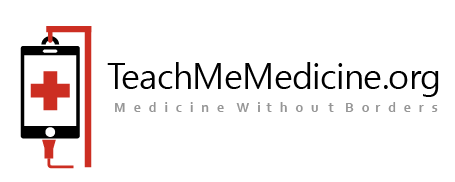Medical Assistant Program
The Medical Assistance program is designed to help you learn and fulfill the duties of a medical assistant. These include clinical duties, such as preparing patients for physician examination, assisting during exams, instructing patients regarding their medication and diet, taking blood pressure, and many others. The duties of a medical assistant also include administrative duties such as answering telephones in a polite and professional manner, filing and updating patient medical records, filling out paperwork for insurance and many others.
In order to become a medical assistant, you must exhibit knowledge in the following areas:
- The Basics
- Medical Terminology
- Basic Medical sciences
- Clinical Sciences
- Laboratory Sciences
- Diagnostic Imaging
- Diagnostic Skills
- Evaluation Skill
- Communication Skills
- Prescriptions
- Exercise Instructions
- Procedural Skills
- Electronic Medical Records
- Office Management
- Medico-Legal
In order to become certified through this course, you will need to successfully pass comprehensive exams based on the medical assistant program subjects listed above.
Practical, on-site, hands-on training will also be included for the completion of this program to instruct you better in performing the duties of a medical assistant as described by the list above.
Program Outline
Training Requirements
Training Requirements:
- Students are required to have 10 hours of training in administering skin tests/giving injections OR 10 hours of training in venipuncture/skin puncture for the purpose of withdrawing blood. 10 hours of training in administering medicine by inhalation is also required.
- Students are required to be assessed a satisfactory performance of at least 10 each of intramuscular, subcutaneous, and intradermal injections, as well as 10 skins tests, 10 venipuncture and 10 skin punctures.
Application Requirements
Curriculum
Curriculum: Students will have to learn and be tested on the following information laid out in the curriculum. All information can be accessed in the resources and lecture videos listed below the curriculum. Click here to view the curriculum.
Clinicals
In order to become a medical assistant, you must exhibit knowledge of and competency in performing the following duties (for further details about each duty, click on the link):
- Preparing patients for physician examination
- Assisting during patient examinations
- Instructing patients regarding their medication and diet
- Collecting laboratory samples, including drawing blood samples and collecting urine samples
- Performing basic laboratory testing procedures, such as TB tests
- Preparing and authorizing prescriptions and prescription refills as directed by the physician
- Removing sutures/changing dressings
- Performing electrocardiography
- Competently using computer applications
- Answering telephones in a polite and professional manner
- Checking patients in/scheduling appointments
- Filing and updating patient medical records
- Filling out paperwork for insurance, handling billing and bookkeeping, and arranging for patient admissions with a hospital
Coursework
The following coursework must be completed for this program:
Procedural Skills
There are also a number of medical procedures that a medical assistant must learn, be taught while at their respective partner clinic, and be able to perform while working with the physician. The following list includes all of the medical procedure you will need to learn. You will not need to learn all of the procedures included on the list; to determine which procedures you will be taught and evaluated on, please speak with your mentor. To view the list of common medical procedures, please click here.
Competencies
In order to become a medical assistant, you must exhibit knowledge in the following areas:
- Medical terminology used when conversing with and assisting the physician
- General anatomy and physiology of the human body and how to apply that knowledge when assisting the physician and the patients
- General pharmacology, including basic bacteriology, therapeutic effects of drugs, general knowledge of diseases, and local government regulations regarding the use of pharmaceutical treatment options
- Health, nutrition, and weight loss methods and strategies that can be relayed to patients in appropriate situations
- Office management and proper handling of medical records/insurance information
- Basic computer applications
Examination
In order to become certified through this course, you will need to successfully pass comprehensive exams based on the medical assistant program subjects listed above.
Grading:
The grade for the course is based entirely off the tests that are taken.
The total amount of points possible to be earned for this course is 500 points.
Tests 1-3: 100 points each.
Comprehensive Final Exam: 200 points.
Grading Scale:
90-100 A
80-89 B
70-79 C
60-69 D
<59 F [/av_toggle] [av_toggle title='Certification' tags='' av_uid='av-13c1p7z'] In order to become certified through this course, you will need to successfully pass comprehensive exams based on the medical assistant program subjects listed above.
Practical, on-site, hands-on training will also be included for the completion of this program to instruct you better in performing the duties of a medical assistant as described by the list above.
Physician Evaluation
